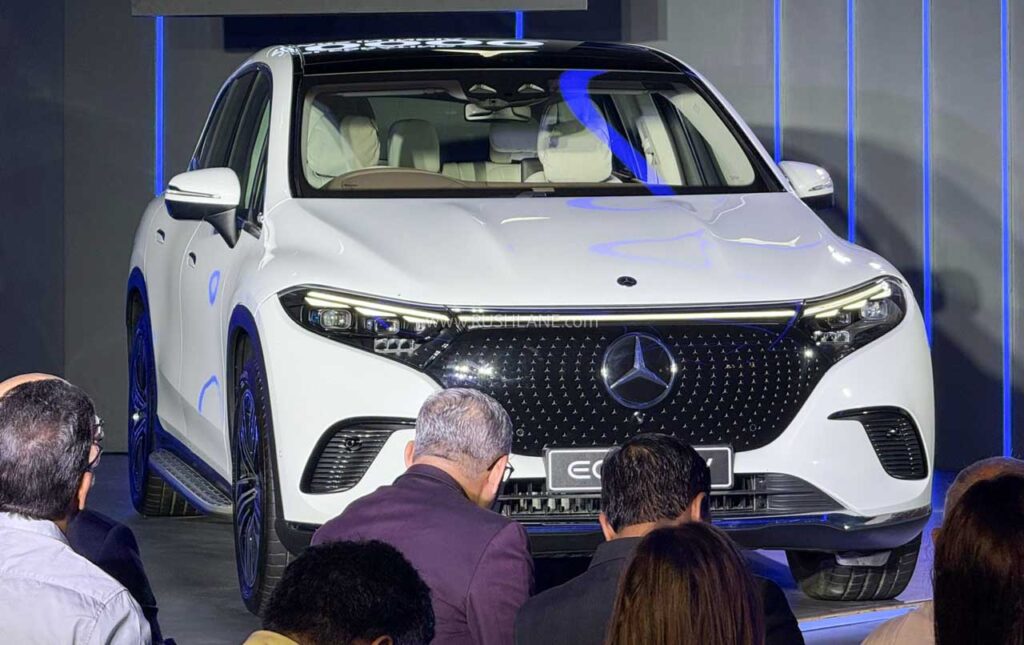
While reducing import duty, India’s EV policy has special provisions to encourage investment and local manufacturing
Last year, the Ministry of Heavy Industries released its proposal to promote the manufacturing of electric passenger cars in India. And now, that initiative has been finalized and introduced as the Scheme to Promote Manufacturing of Electric Passenger Cars in India (SPMEPCI). Let’s explore some of the key highlights of this scheme.
Investment necessary to avail import duty concessions
As per this scheme, eligible carmakers will enjoy a reduced import duties from 110% to 15%. To access the reduced import duty of 15%, carmakers need to commit to manufacture EVs in India. This commitment will come via a mandated investment of USD 500 million (approx Rs 4,150 crore), which has to be made within three years. Carmakers are free to use any of their existing facilities.
However, any investments made earlier cannot be included in the mandated fresh investment of Rs 4,150 crore. If these conditions are met, a carmaker can access the reduced import duty for five years. Participants in India’s new EV scheme will also need to achieve annual turnover milestones. For example, the turnover should be Rs 2,500 crore by the second year.
Similarly, the turnover milestones of fourth and fifth year are Rs 5,000 crore and Rs 7,500 crore, respectively. Manufacturers also need to increase localization in a progressive manner. By the third year, local value addition via local manufacturing should be 25%. And by the end of the 5th year, the localization value should increase to 50%.

Reduced import duty applicable on EVs priced above Rs 30 lakh
To safeguard the interests of existing EV manufacturers in India, the reduced import duty of 15% will be applicable only on EVs priced above USD 35,000 or approx. Rs 30 lakh. This limit will help ensure that the current set of EVs available in the mainstream market remain protected from unfair trade practices such as dumping. This group includes locally manufactured electric cars such as Mahindra XEV 9e, BE 6, Tata Harrier EV, Punch EV, Nexon EV, Curvv EV, MG Windsor, Hyundai Creta Electric, etc. Also, upcoming options such as Maruti e-Vitara, Sierra EV, etc.
There is also a cap of 8,000 units per annum for accessing the reduced import duty. Beyond this number, the standard import duty of 110% will be applicable. SPMPCI also mentions that total savings cannot be more than Rs 6,484 crore or the actual investment made, whichever is lower. If there are any unused annual quotas, these can be carried over to the next year.
Details of expenses that can be counted under the initial investment have also been mentioned in the SPMPCI document. It includes expenses related to research and development facilities, machinery and manufacturing equipment. For expenses linked to charging infrastructure, up to 5% of total investment will be considered. For land and buildings that are part of the primary manufacturing facility, up to 10% will be considered as part of total initial investment.

As per the SPMPCI policy document, the eligibility criteria for carmakers includes annual revenue of Rs 10,000 crore directly linked to automotive manufacturing. Also, the eligible company should have annual global assets investment of at least Rs 3,000 crore.
Tesla reluctant to manufacture locally
It is expected that the government will soon launch an online portal to facilitate participation in the SPMPCI scheme. Eligible carmakers will be able to apply for the scheme and get the approval letters.
Tesla can benefit from this scheme, but it appears that the company is not interested in manufacturing in India at this point of time, given the political stance of Trump administration. In that case, Tesla will likely choose the 110% tariff route to sell its cars in India. However, other carmakers such as Skoda, Volkswagen, Mercedes-Benz, Hyundai and Kia have expressed interest to benefit from the SPMPCI policy.

